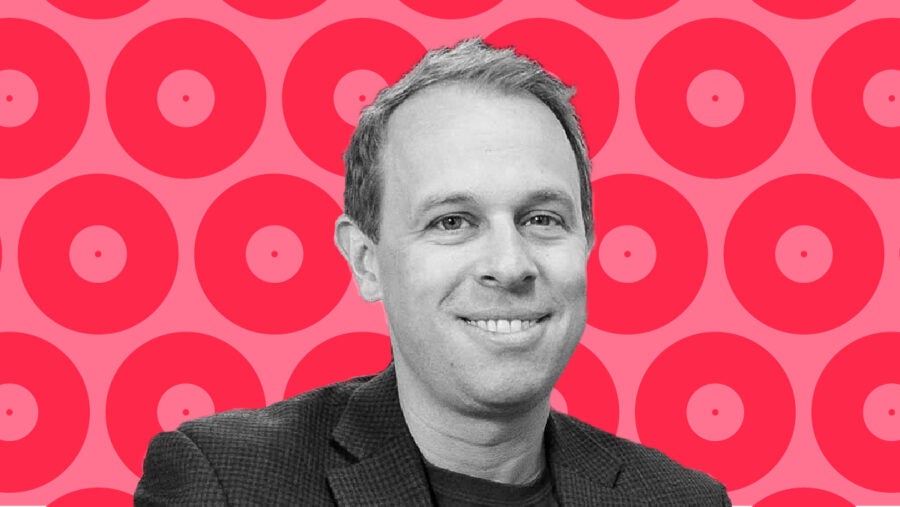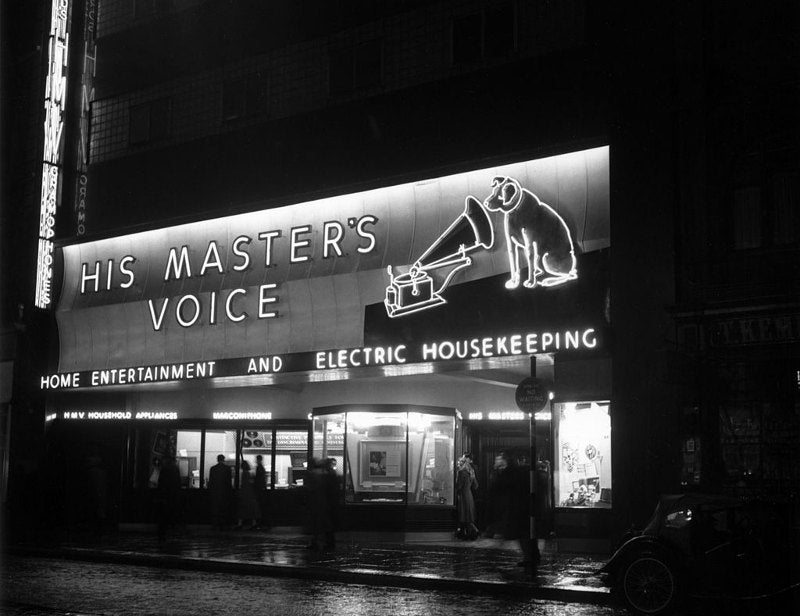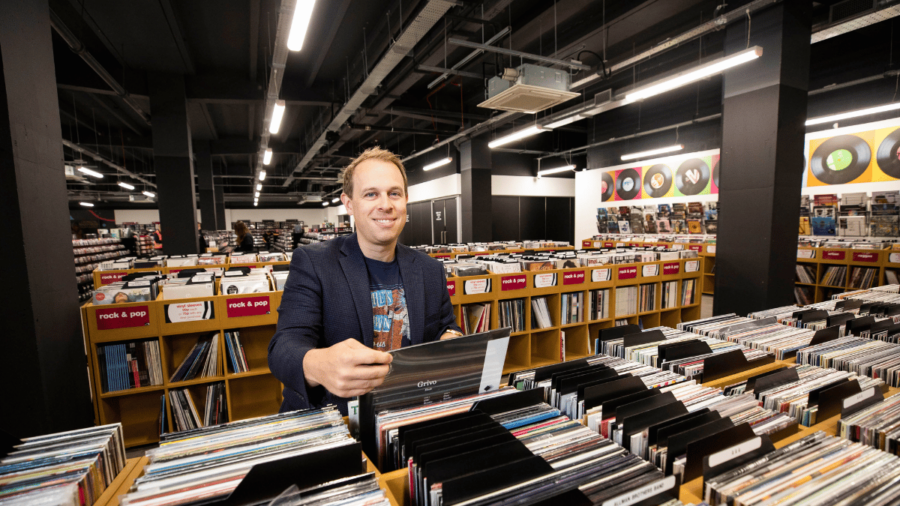
If music retailer HMV wasn’t quite dead and buried at the start of 2019, it was certainly planning a funeral.
The beleaguered chain had just collapsed into administration for the second time in a decade after failing to lure entertainment fans away from online streaming’s siren call. Its bread and butter products – CDs, DVDs, Blu-rays – were in terminal sales decline. Little wonder, then, that Canadian music retailer Sunrise Records, headed by Doug Putman, could snap up its business and assets for just £883,000.
Barely four years later, that is looking like a good deal. HMV UK posted gross profits of £65.4m for 2022, boosted by a 66.8% surge in revenue. Sales are growing, with 80% coming from its 119 shops across the UK, which host live performances from names as big as Ed Sheeran.

In perhaps its most confident move yet, HMV announced in May that it had signed a lease to take over the five-storey building at 363 Oxford Street, London, from an American candy shop. The location was the brand’s world-famous flagship for nearly a century until it shut in 2019.
“HMV is an institution and 363 is that next level up,” says Putman of the deal, which he has been working on since buying the business. “It’s good for the street and it lends itself well to doing some special things. You can do something different with every floor and have something for everyone.”
The move is not without risks. Oxford Street rents and business rates are sky-high – HMV’s previous owners were losing £5m a year on that store alone – while the street has seen several high-profile closures over the past decade. However, Putman has faith in the power of HMV’s brand to draw shoppers in.
“When it went into administration, there was an outpouring of people who were genuinely upset,” he says. “It was pretty clear that the customer didn’t want to have to go and buy from somewhere else. They wanted HMV to be around.
“What you really want to believe is that the customer is rooting for you to be successful. If you get enough people giving you the benefit of the doubt, that’s how you can turn something around really quickly.”
Putman has form when it comes to reviving bricks-and-mortar brands others have given up on. After dropping out of business school, he set to work expanding his family’s toy store business before taking over boutique record store chain Sunrise Records. He brought HMV Canada under that brand in 2017 and expanded it to 85 nationwide locations.
How Putman revived HMV’s high street shops
Putman’s big idea for HMV UK is for it to sell pop culture merchandise and gifts – from Funko Pops to Squishmallows – while “tripling down” on physical formats to cater to serious music fans. It’s a tricky balancing act and the company has caught some flak for shifting its focus away from music.
Putman thinks that’s a limited view. “We’re more and more realising that we have multiple core customers and we have to make sure that we’re appealing to each of them. We’re seeing a lot of crossover; people buying vinyl but also picking up a band T-shirt, or a pack of Pokémon cards for their kids.”

The revival of vinyl has helped bring shoppers back. UK consumers bought 5.5 million records last year, the largest volume since 1990. The company’s Birmingham outlet is the largest entertainment store in Europe and sells 25,000 vinyl albums in addition to 80,000 CDs and 40,000 DVDs, while HMV created a branded turntable to mark its centenary last year.
But when any song or film in the world is just a click away, can that trend last? Putman says HMV is attracting younger customers than ever before, many of whom are enthusiastic about stuff: “There’s not a lot for kids to collect now. When I was a kid, we had baseball cards, football cars, you name it. Now it’s all online.”
Vinyl is stepping into that gap as the digital backlash grows among younger generations, Putman argues. “Everyone wants these tangible things. It’s nice having 10,000 pictures on my phone, but it’s not the same feeling as having them in a photo album. I think music is like that, too. Yes, you can listen to it on your iPhone, but there’s something about putting on a record. I feel like an old soul because I think everything’s gone too far digital. Everything is phone, phone, phone. But sometimes it’s nice to just pause and enjoy things.
“I don’t pretend HMV is the saviour of that. But having the ability to buy things that are ‘touch and feel’ – books, vinyl – I think these things are going to stick around.”
A winning formula for turnarounds
That love for physical retail is what links his other investments. Putman bought Toys ‘R’ Us Canada in 2021 and, last month, signed a deal to purchase 21 Bed, Bath & Beyond homeware shopfronts that will reopen under the name rooms+spaces.
“We’re open to any kind of business,” he says, but adds that turnaround targets are carefully chosen. “First and foremost, do we like the industry? If yes, do we like the business and do we see a future for it?”
Only when those two questions are answered does the team start digging into the numbers. Red flags include companies locked into “horrendous” rent deals or where the business is simply too cash-intensive to turn around. Strong relationships with suppliers and landlords, which HMV had in spades, are a positive sign.
Once the deal is signed, the first step is to send in a small team, including Putman, who “get to know everyone and listen to what’s going on. We talk to store associates, we talk to head office.”
When it comes down to business, I want to win. I know how quickly distressed businesses can fall apart
From there, it’s about carefully selecting the right leadership team and giving them autonomy. Sunrise Records likes to hire younger people “who have worked really hard” and give them a few steps up, says Putman, who is himself just 39.
That includes Phil Halliday, managing director of HMV UK, who worked for several record labels before joining the firm. Putman admits he liked Halliday personally but says attention to detail and killer focus is even more important in a turnaround team.
“I might seem easygoing, but when it comes down to business, I want to win,” he says. “I see so many distressed businesses that I know how quickly these things fall apart.”
Today, Putman believes the team has hit on a winning formula for HMV and that there is scope to replicate it across Europe. That would be a big comeback: its Irish, Asian and US shops all shut in the 2010s.
However, he argues brick and mortar is here to stay, pointing to increased weekend shopping post-pandemic and online’s flatlining share of retail sales in many countries.
“The true intersection of something being great is online with some physical component,” he says. “Everyone’s still trying to figure out exactly how to do it, what that special sauce is. I think HMV is getting there.”

If music retailer HMV wasn’t quite dead and buried at the start of 2019, it was certainly planning a funeral.
The beleaguered chain had just collapsed into administration for the second time in a decade after failing to lure entertainment fans away from online streaming’s siren call. Its bread and butter products – CDs, DVDs, Blu-rays – were in terminal sales decline. Little wonder, then, that Canadian music retailer Sunrise Records, headed by Doug Putman, could snap up its business and assets for just £883,000.
Barely four years later, that is looking like a good deal. HMV UK posted gross profits of £65.4m for 2022, boosted by a 66.8% surge in revenue. Sales are growing, with 80% coming from its 119 shops across the UK, which host live performances from names as big as Ed Sheeran.
